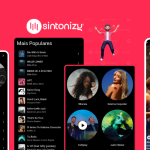As missiles cross the skies of the Middle East and fears of a new global conflict grow, a curious response is taking over the internet: memes.
Generation Z — young people born between the mid-1990s and 2010 — is responding to the geopolitical chaos with generous doses of sarcasm, digital creativity and edgy humor. The internet is full of videos, montages and comments that mix fear and mockery in the face of the possibility of the so-called “WW3” (acronym in English for Third World War).
🔥 Missiles in the sky, memes in the feed
Since the intense clashes between Israel and Iran that worsened in June, social networks such as TikTok, X (formerly Twitter), Reddit and Instagram have been taken over by a flood of content related to the conflict. But, contrary to what one would expect in times of panic, the predominant reaction among young people was to turn it into viral content.
Phrases like “will this delay my SHEIN order?”, “what to wear in WW3?” and videos simulating soldiers dancing to trending songs are among the highlights. Others make montages with captions like: “Waking up to notifications that WW3 has started”.
📈 The fear is real, but the reaction is digital
Although it all seems like a big joke, the statistics tell another story: Google Trends recorded massive increases in searches for terms like “World War 3”, “draft USA”, and “nuclear war shelter”. The behavior reveals a recurring pattern: humor works as an escape valve in the face of uncertainty.
“Laughter is a form of defense. It’s how young people today deal with mass anxiety”, points out behavioral psychologist Fernanda Ávila. “They were raised in a world full of crises: pandemic, climate change, economic instability — and now, the threat of a global war. Laughing is a way of saying ‘we’re still here’”.
💣 Fake news fuels chaos
In the midst of memes, informational chaos also intensifies. Fake profiles — including one that pretended to be an official Iranian agency — published alarming messages like “everyone will feel this”, causing mass misinformation and increasing virtual tension.
Platforms like Reddit also host more serious discussions, with topics like:
“Are we really heading towards a world war?”
“I’m 19 and I’m scared of the draft.”
These forums reveal that, behind the irony, there is a palpable climate of uncertainty.
⏮️ A déjà-vu from 2020
This isn’t the first time WW3 has trended. In January 2020, after the US eliminated Iranian general Qasem Soleimani, there was a similar spike in apocalyptic memes. Back then, just as now, humor helped the internet assimilate an uncomfortable reality.
🧠 Memes as emotional resistance
Experts emphasize that this behavior of Generation Z should not be interpreted as insensitivity. On the contrary: it is a language of its own, in which humor functions as a code for emotional survival and social criticism.
“When a young person posts a ‘WW3 outfit guide’ accompanied by a montage of military clothing, they are simultaneously mocking consumerism, war and the trivialization of violence,” explains digital communication researcher Marcelo Vilela.
🌐 Global culture of crisis
The speed with which memes spread is proof of how Generation Z lives in a globalized and hyper-informed culture — and at the same time saturated with crises. Many grew up hearing that the world was ending and have become masters at transforming tragedy into viral content.
Conclusion: Between laughter and fear, a generation that doesn't run away from collapse — it just turns it into a trend
While older people face tensions with concern and governments discuss diplomatic strategies, Generation Z continues to post, react and laugh — perhaps to keep from crying. In times of war (or on the brink of it), memes can be more than entertainment: they can be emotional shields and even forms of cultural resistance.
 Português
Português







